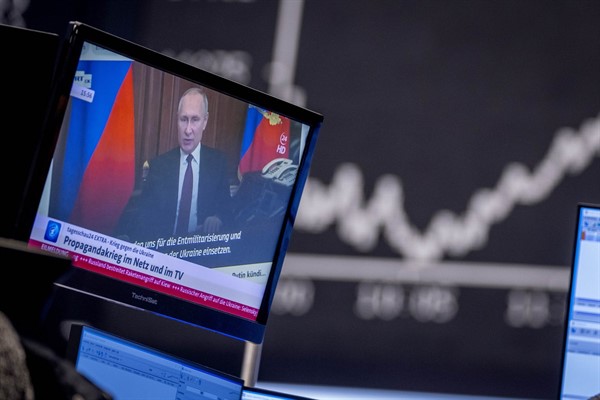Russia has a long history of using disinformation and propaganda to advance its interests, and the war in Ukraine is no exception. Washington has so far reacted effectively, but the next phase of the conflict will bring new challenges, and the U.S. government and U.S. technology companies will need to push back on Russian tactics in ways that affirm democratic principles.
For months preceding the invasion, the Kremlin deployed a concerted propaganda campaign designed to lay the groundwork for justifying it. This campaign included a deliberate effort to cast Ukrainians as Nazis and the perpetrators of genocide against Russian speakers in Eastern Ukraine; to advance incendiary false allegations of provocative violence by Ukrainian forces; and to depict NATO and the United States as the true aggressors. All the while, Kremlin-backed accounts online have blamed Washington and London of “spreading war propaganda” and conducting “information terrorism.”
That campaign did not stop when the invasion began. In recent days, Facebook’s parent company, Meta, announced that it had taken down a coordinated Russian influence operation that was targeting Ukrainians on Facebook and Instagram, as well as a coordinated hacking group attempting to compromise accounts within Ukraine. According to Meta, the operation used fake accounts to target high-profile Ukrainians, including journalists, military leaders and public intellectuals. Meanwhile, Russian state media have circulated rumors that Ukrainian President Volodymyr Zelensky had fled the country. And according to a U.S. government official, Moscow planned to publicize false reports about the widespread surrender of Ukrainian troops in order to demoralize Ukrainian citizens and soldiers.

